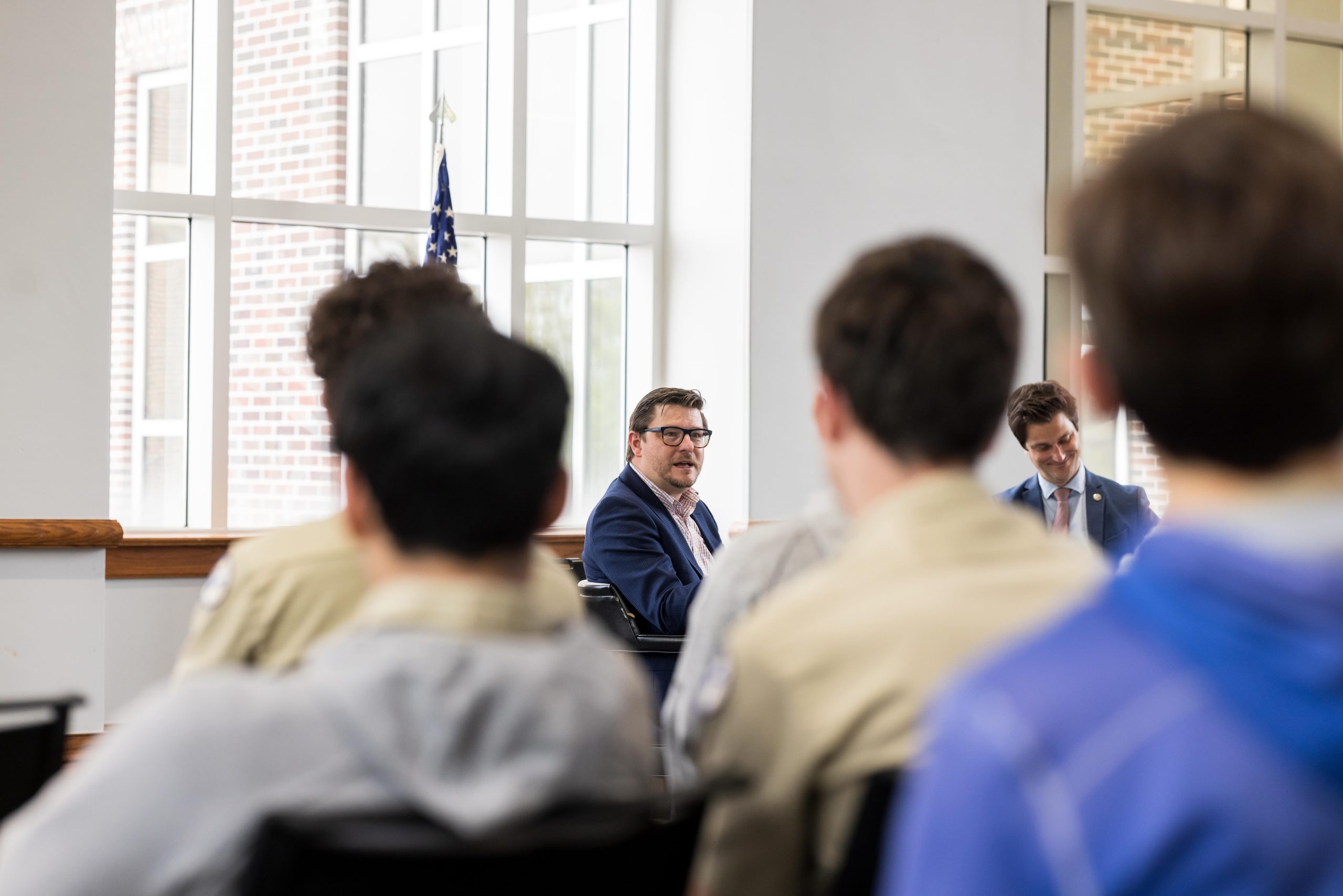Allen Carey Inspires Thougthful Dialouge on Civil Discourse

Alongside the annual career day, a noteworthy presentation featured Allen Carey of the Cato Institute engaged several classes in thoughtful dialogue on civic education, civil discourse, and the institutions of civic culture. Carey opened his discussion by defining civil discourse as “robust, honest, frank, and constructive dialogue and deliberation that seeks to advance the public interest,” a definition originally set forth by the National Institute for Civil Discourse at the University of Arizona. He emphasized that effective civil discourse requires a willingness to listen to differing viewpoints, a practice essential for both a healthy society and the democratic process.
Moderated by Jean‑Paul Perrilliat ’03, senior development director, students from American History and Civics classes listened intently as Carey explained that civil discourse forms the foundation for independent thinking and learning. He highlighted that by articulating positions on challenging topics and engaging respectfully with opposing perspectives, individuals refine and mature their ideas. Drawing inspiration from J. S. Mill’s observations, Carey reminded students that understanding one’s views often necessitates hearing the most persuasive forms of opposing opinion.
Carey also addressed the potential consequences of abandoning open exchange. Without civil discourse, he warned, society risks becoming increasingly divided, with diminishing interaction between people of differing perspectives potentially leading to ignorance and, in extreme cases, violence. On a personal level, the absence of civil dialogue can impede the intellectual growth that arises from engaging with contrasting ideas.
Linking civil discourse to the sacred right of free speech, Carey underscored that free speech protects both the speaker’s right to express unpopular or controversial opinions and the hearer’s right to access a full range of ideas. Citing Frederick Douglass’s words, he illustrated that free speech is a cornerstone of liberty, and that suppressing either expression or the opportunity to listen constitutes a double injustice. Carey further observed that counter speech—engaging and refuting disagreeable ideas with reason and evidence—is the appropriate remedy rather than silencing voices outright.
Beyond legal safeguards such as the First Amendment, Carey stressed the importance of nurturing cultural conditions that foster open inquiry. He explained how a culture that encourages respectful disagreement and values active listening creates space for innovation, progress, and the healthy exchange of ideas. Students from various classes asked probing questions about how civil discourse shapes a pluralistic society and supports independent thought; Carey’s responses clarified how these principles intertwine with free speech and freedom of conscience.
Reflecting the Jesuit and Ignatian commitment to discernment and the pursuit of truth, Carey’s presentation resonated with values central to Jesuit education. His insights encouraged students to practice reflective judgment and to embrace the greater good, affirming that civil dialogue not only fosters personal growth but also deepens community bonds in the service of a just and caring society.